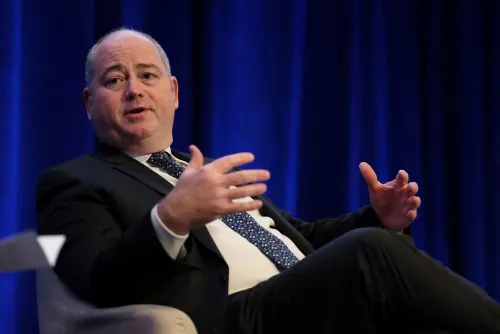In Sydney on March 18, the CEOs of two leading Australian banks expressed concerns that the trade war ignited by U.S President Donald Trump's tariffs could escalate global inflation, increase market volatility, and hinder economic growth. They noted that Australia, conversely, is shielded from such disturbances.
The heads of Commonwealth Bank of Australia, the top retail lender, and National Australia Bank, the foremost business lender, cautioned at a conference that the protectionist policies of the new U.S. administration could strain the global economy by raising costs and creating uncertainty in the medium term.
Regarding Australia's exports, which amount to approximately $15 billion per year to the U.S., the financial leaders highlighted that this figure is comparatively small in the context of the country's overall export trade. They contrasted this with Canada, which depends on the U.S. for 85% of its exports.
Addressing the Australian Financial Review Business Summit in Sydney, CBA CEO Matt Comyn mentioned, "There's certainly risk to the downside, around slowing global growth," and pointed out that U.S. tariffs could lead to "inefficiencies in trade (and) therefore more inflation."
In response to a recent rate cut by the Reserve Bank of Australia, resulting in a 4.1% drop, CBA's head of retail banking Angus Sullivan noted a significant increase in mortgage applications since November 2020.
Furthermore, NAB CEO Andrew Irvine stated that while the rate cut provided a positive boost to the economy, concerns over "tariff madness" introduced by Trump might reduce the likelihood of further cuts this year. NAB currently anticipates two 25-basis point reductions by 2025, with Irvine commenting, "We're not an island... If this tariff madness does happen, we could be at the end of (rate) reductions."
